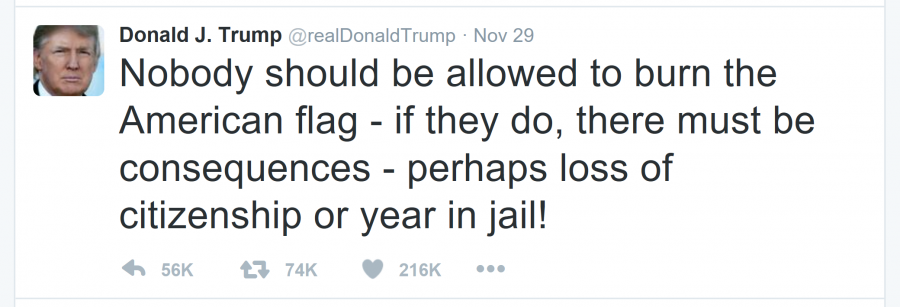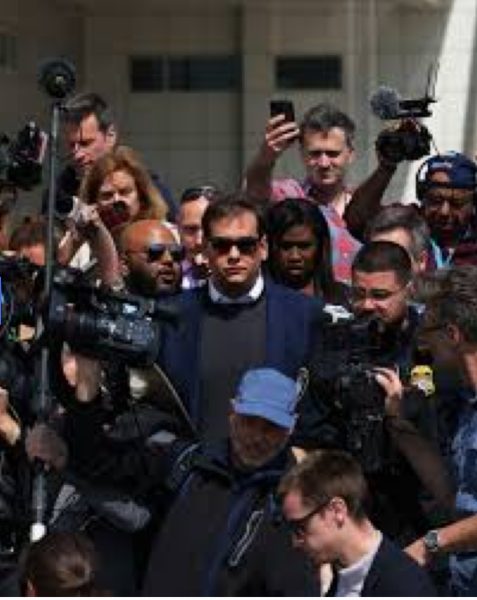Trump Flag-Burning Tweet Incites Controversy
On Tuesday, president-elect Donald Trump said via Twitter that those who burn the American flag should be punished, citing jail time or loss of citizenship as possible consequences. His statement came in contrast to two previous Supreme Court rulings protecting the right to desecrate the flag as a form of free speech.
“Nobody should be allowed to burn the American flag – if they do, there must be consequences – perhaps loss of citizenship or year in jail!” Trump tweeted on the morning of November 29 at 6:55 AM.
Twice, in Texas v. Johnson and United States v. Eichman, the Supreme Court has ruled that burning the flag is a form of symbolic speech guarded by the First Amendment. Trump’s statement also contradicted the positions of several vaunted conservative thinkers such as Senate Majority Leader Mitch McConnell, late Supreme Court justice Antonin Scalia, and current Chief Justice John Roberts.
The tweet has proved quite controversial, both on a national and local scale. On the Williston campus, students’ views on the issue vary. Oscar Defrancis ’20 opposes the President-elect’s position. “I strongly disagree [with Trump] because…that would be a clear violation of the First Amendment,” he remarked.
Reilly Gluz ’19 took a different perspective. “I think there should be punishments, but I don’t think [flag-burners] should be put in jail,” Gluz said.
Though the impetus for the tweet is somewhat unclear, a nationwide discussion on flag-burning has arisen partly due to students at Amherst’s Hampshire College who burned a campus flag on November 10 in protest of Trump’s November 8 election. The college elected to take down the flag after the incident, a decision that riled some local residents. Hampshire later reinstalled the flag in response to protests from locals. The events at Hampshire, originally a local story, have reached national news following Trump’s tweet.
If Trump is serious about instituting a punishment for flag-burning, he will likely face an uphill battle to get his way. Even if a new bill or amendment can be pushed through congress, it is improbable that the Supreme Court would uphold such a law.












